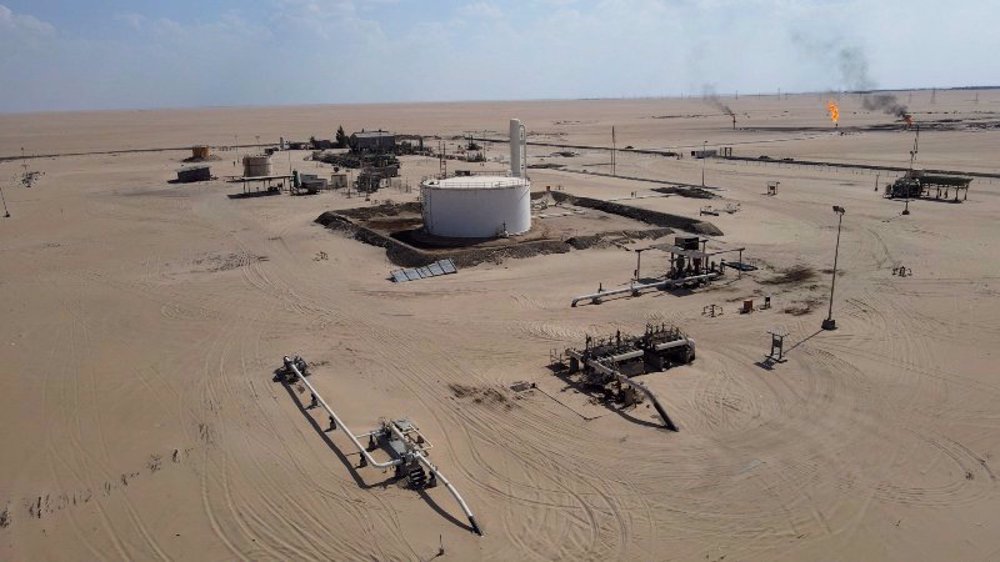French, German FMs make surprise Libya visit amid eastern battles
French and German foreign ministers have made a surprise visit to the Libyan capital of Tripoli in a show of support for a unity government in the war-torn nation amid new clashes in the east that killed 15 security forces.
France's Jean-Marc Ayrault and Germany's Frank-Walter Steinmeier arrived in Tripoli on Saturday amid tight security to take part in talks with the nation’s UN-backed cabinet, which has established operations at a naval base in the city.
Western leaders view the UN-sponsored Government of National Accord (GNA) in Libya as a key partner in countering various militant groups behind numerous bloody attacks in the oil-rich North African country as well as human traffickers taking advantage of the country's turmoil ferrying distraught war refugees to European shores.

The development came as two days of intense clashes between government troops and Takfiri Daesh (ISIL) militants in eastern Libya’s major port city of Benghazi killed at least 15 security forces.
This is while Libyan Army spokesman Milad al-Zawie announced Saturday that six soldiers were killed and over two dozen injured in one of two bomb explosions near a cement factory in Benghazi. Nine more security forces also perished during ensuing gun battles that further killed several ISIL terrorists, including the two bombers.

The militant group, however, claimed that dozens of government soldiers were killed in the twin bombings.
Meanwhile, speaking to journalists following a meeting between the two visiting foreign ministers and Libya’s Prime Minister-designate Fayez al-Sarraj, Ayrault said the GNA is seeking "training for its police and military forces.”
"There is the need to train them perhaps in the beginning outside of Libya and this is what we will discuss on Monday," added Steinmeier, referring to upcoming talks in Luxembourg on a possible EU mission to assist Libya's police and border guards.
Sarraj also told reporters that he spoke to Ayrault about "combating terrorism," adding however that "we shouldn't be waiting for international intervention."
The top diplomats' visit came two days before a key vote by Libya's internationally recognized parliament on whether to endorse the GNA.

It marked the latest in a flurry of visits by European diplomats who had been absent since 2014 when EU countries shut down their Tripoli embassies as battles among rival militant groups intensified in Libya.
Italy's Foreign Minister Paolo Gentiloni, who also visited Tripoli on Tuesday, hailed the GNA as a "game changer."
Libya has been marred by violence since a NATO military intervention followed the nation’s 2011 revolution that led to the toppling and killing of its longtime dictator, Muammar Gaddafi.
The oil-rich nation has had two rival administrations since mid-2014, when militants overran the capital and forced the parliament to flee to the country’s remote east.
The two administrations reached agreement on a UN-sponsored unity government last December.
Iran, Pakistan resolute on boosting defense, military cooperation
Hamas hails decision by Spain to block ships carrying arms to Israel
VIDEO | Press TV's news headlines
Israeli thugs wage chaos, vandalism in Amsterdam with anti-Palestinian violence
Yemen launches missile attack on Israeli airbase
VIDEO | Lebanon, a quagmire for Israel
Iran urges trial of Israeli criminals for violence against children
70% of victims of Israeli genocide in Gaza are children and women: UN














 This makes it easy to access the Press TV website
This makes it easy to access the Press TV website